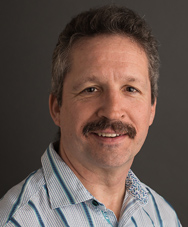
Interview with Jim Estill, President and CEO, Danby Group
|
bh in BriefJim Estill is a Guelph businessman who is personally sponsoring 50 Syrian refugee families and, in effect, leading a community-wide settlement initiative that involves volunteers from faith groups, social agencies and other businesses. From Estill’s point of view, “Its just doing the right thing is all it is.” Danby is the leading refrigeration and specialty appliance company in North America, offering unique and inspired appliances loved by people continent-wide. Its corporate office is located in Guelph, Ontario. www.danby.com
“… if it’s done from the heart, it’s a good thing to do …” |
1. How has this project affected others at Danby and at other businesses? 2. What is your goal? 3. What are your strategies? How is the initiative being organized? Organization is key. It is totally a volunteer project. I have 750 volunteers, all background checked and organized into nine teams. Each team is led by a Director and Assistant Director. We have Directors of Mentors, Finance, Education/Training, Health, Food and Meals, Jobs, Transportation, Housing, and Donations. Each Director has specific responsibilities. For example, the Director of Mentors organizes the mentors (who may be a family rather than an individual) and assigns families. Each refugee family is assigned to a Lead Mentor who orchestrates a group of mentors for them. Each mentor has a checklist of things that must get done for each family (e.g. how to use the bus, get a library card, find an internet computer, and get health check-ups). Every two weeks the Lead Mentor “scorecards” each family to see how they are doing. Mentors help each other out and we have a “mentor the mentor” program to guide them. Each family has both an Arabic and an English speaking mentor. These mentors are usually full families. Teams try to match mentor families with similar refugee families. A Lead Mentor monitors about five families and families have other mentor families as well. Overall, each refugee family needs about three to five local families to support them. 4. What are the challenges? 5. What are the benefits for others? Would you advise other business leaders to get involved? A key problem for business today is engaging people – especially young people. As we are discovering at Danby, a project like this is especially appealing to young people. Millennials like to be inspired. I would advise others to become involved but for the right reasons. We are in the midst of a humanitarian crisis. We need to stand up and be counted. Everyone needs to contribute to the extent they can. Business people have the resources. They are leaders and, at this time, leadership is necessary. This project has made me proud to be Canadian and proud to be at Danby. bh |


